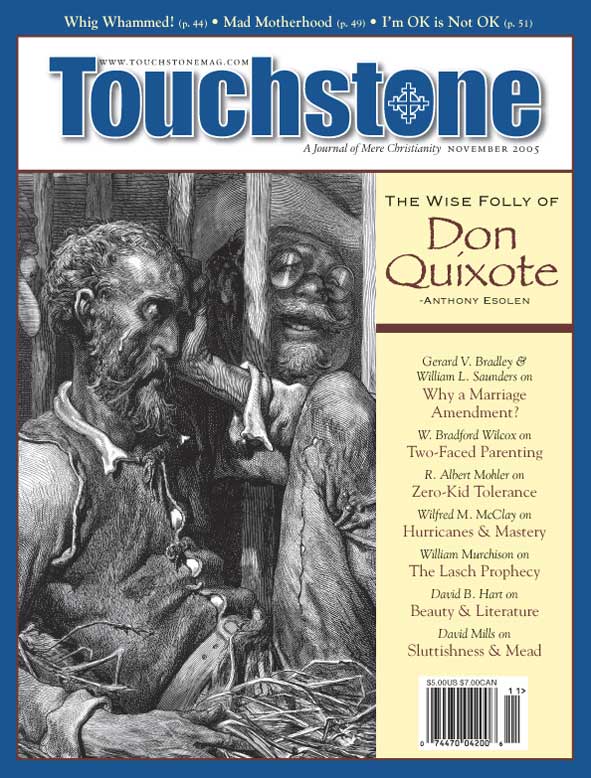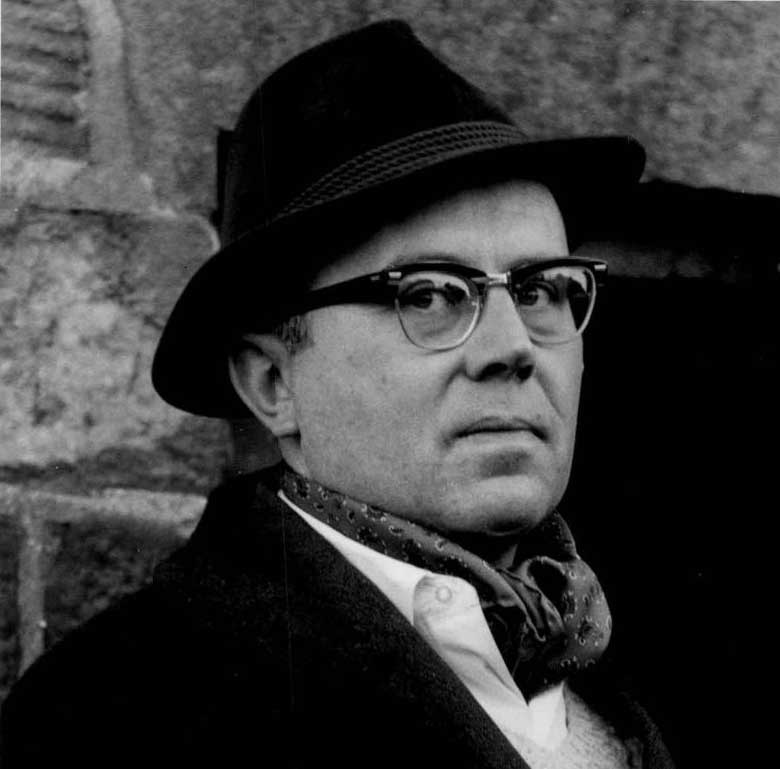Bans of Matrimony
A Constitutional Amendment Is the Only Way to Protect Marriage
by Gerard V. Bradley & William L. Saunders
The legal revolution in favor of same-sex “marriage” has been uncommonly swift. In the nineteenth century, it took the federal government four decades to effectively prohibit polygamy in Utah. By 1856, one national political party (the Republicans) had a platform plank denouncing polygamy, along with slavery, as a “relic of barbarism,” but decisive action came only with the Supreme Court cases in the 1890s.
Smashing Victory
Starting in 1896, it took civil rights lawyers nearly sixty years to undo the constitutional doctrine of “separate but equal” facilities for African-Americans, the doctrine established in Plessy v. Ferguson in 1896 and not overturned until Brown v. Board of Education in 1954 (a decision that featured so prominently in the Senate hearings on the nomination of John Roberts to be Chief Justice). It took thirteen more years, from 1954 to the Loving v. Virginia decision in 1967, to persuade the Supreme Court that putting people in jail for marrying someone of a different color was unconstitutional.
In less time than that, lawyers for homosexuals have taken same-sex “marriage” from an exotic suggestion to a smashing victory in the Massachusetts case Goodridge v. Department of Health in 2003. The judges there declared that “extending civil marriage to same-sex couples reinforces the importance of marriage to individuals and communities” (emphasis supplied).
The Massachusetts decision could scarcely have been more radical. Not only did it cast aside the wisdom of the ages; it declared that our perennial understanding of marriage as the union of man and woman was irrational—in other words, utterly without a foundation in reason. The court even likened opposition to same-sex “marriage” to the racist prejudice against interracial marriage. The date the court appointed for the first same-sex weddings—May 17, 2004—was fifty years to the day after segregation was forbidden in Brown v. Board of Education.
The only real remaining question is how long it will take for same-sex “marriage” to spread from Massachusetts across the rest of the nation. If the history of this revolution is any guide, the answer is that it will not be long— unless the Congress and the people act to put an effective legal block in place.
There are various ways in which same-sex “marriage” might spread across the country. The first is piecemeal: one state at a time, as one state supreme court or perhaps, though this is unlikely, state legislature, establishes the “right.” That is how no-fault divorce laws spread during the 1960s. Lawsuits pending in several states make the same claims as those accepted in Goodridge.
The other two ways by which same-sex “marriage” might spread are (1) by migration of couples who demand recognition in the 49 states of their Massachusetts “marriages” or (2) by a Supreme Court opinion declaring that the Constitution requires the recognition of same-sex “marriage.”
On the straightforward question of whether there is a constitutional right to same-sex “marriage,” as well as on the question whether there must be interstate recognition of same-sex “marriage,” the Supreme Court will have the last word. The best way to ensure that the Supreme Court reaches the correct decision(s) is by amending the US Constitution. Similarly, the only way to ensure that state judges and/or legislatures do not provide legal recognition of same-sex “marriage” is by amending the US Constitution, which is the supreme law of the land and displaces inconsistent state laws.
subscription options
Order
Print/Online Subscription

Get six issues (one year) of Touchstone PLUS full online access including pdf downloads for only $39.95. That's only $3.34 per month!
Order
Online Only
Subscription

Get a one-year full-access subscription to the Touchstone online archives for only $19.95. That's only $1.66 per month!
bulk subscriptions
Order Touchstone subscriptions in bulk and save $10 per sub! Each subscription includes 6 issues of Touchstone plus full online access to touchstonemag.com—including archives, videos, and pdf downloads of recent issues for only $29.95 each! Great for churches or study groups.
Transactions will be processed on a secure server.
more on marriage from the online archives
more from the online archives
calling all readers
Please Donate
"There are magazines worth reading but few worth saving . . . Touchstone is just such a magazine."
—Alice von Hildebrand
"Here we do not concede one square millimeter of territory to falsehood, folly, contemporary sentimentality, or fashion. We speak the truth, and let God be our judge. . . . Touchstone is the one committedly Christian conservative journal."
—Anthony Esolen, Touchstone senior editor













